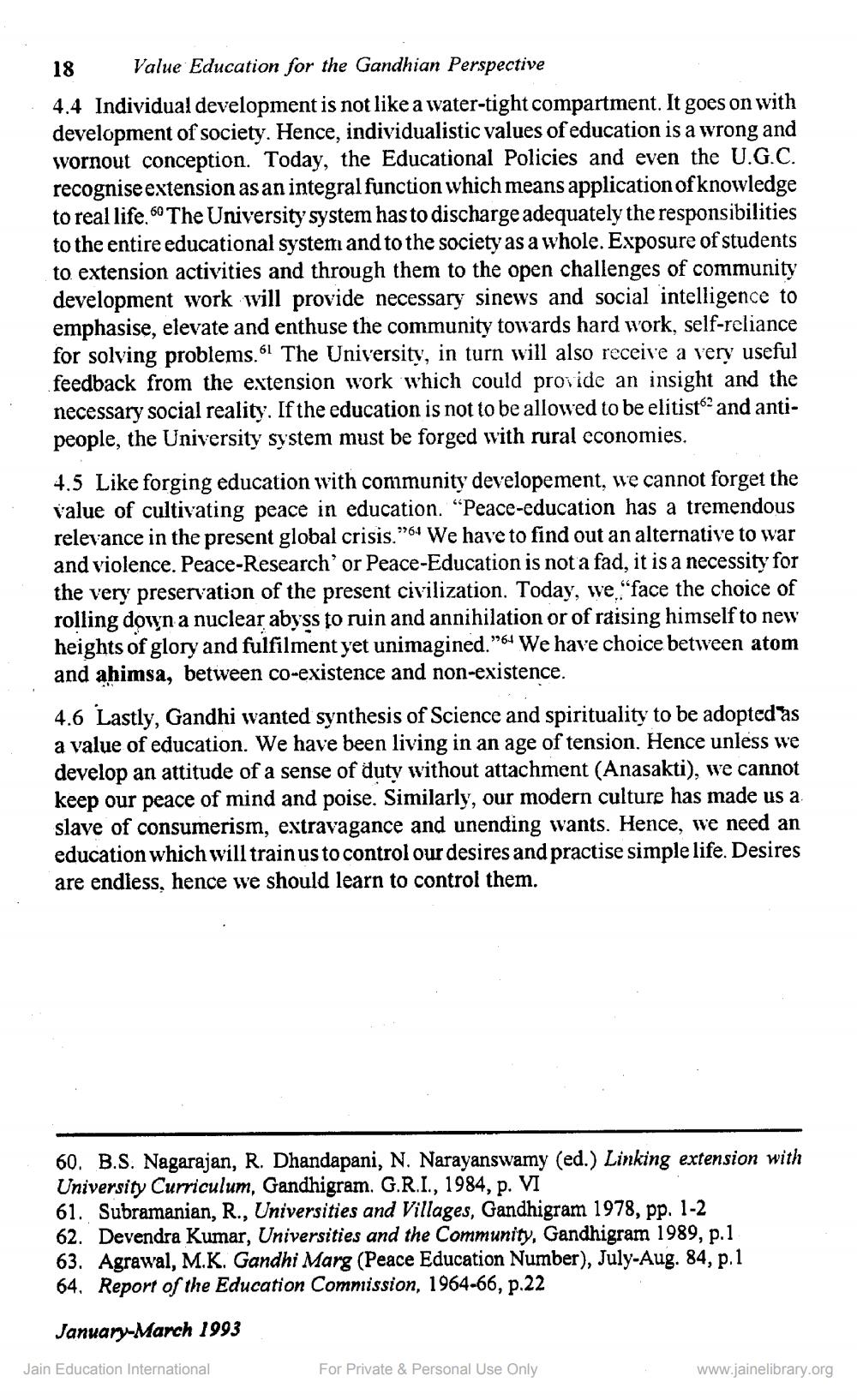________________
18 Value Education for the Gandhian Perspective 4.4 Individual development is not like a water-tight compartment. It goes on with development of society. Hence, individualistic values of education is a wrong and wornout conception. Today, the Educational Policies and even the U.G.C. recognise extension as an integral function which means application of knowledge to real life. The University system has to discharge adequately the responsibilities to the entire educational system and to the society as a whole. Exposure of students to extension activities and through them to the open challenges of community development work will provide necessary sinews and social intelligence to emphasise, elevate and enthuse the community towards hard work, self-reliance for solving problems.61 The University, in turn will also receive a very useful feedback from the extension work which could provide an ins necessary social reality. If the education is not to be allowed to be elitist and antipeople, the University system must be forged with rural economies. 4.5 Like forging education with community developement, we cannot forget the value of cultivating peace in education. “Peace-education has a tremendous relevance in the present global crisis."64 We have to find out an alternative to war and violence. Peace-Research' or Peace-Education is not a fad, it is a necessity for the very preservation of the present civilization. Today, we face the choice of rolling down a nuclear abyss to ruin and annihilation or of raising himself to new heights of glory and fulfilment yet unimagined."We have choice between atom and ahimsa, between co-existence and non-existence. 4.6 Lastly, Gandhi wanted synthesis of Science and spirituality to be adopted as a value of education. We have been living in an age of tension. Hence unless we develop an attitude of a sense of duty without attachment (Anasakti), we cannot keep our peace of mind and poise. Similarly, our modern culture has made us a slave of consumerism, extravagance and unending wants. Hence, we need an education which will train us to control our desires and practise simple life. Desires are endless, hence we should learn to control them.
60. B.S. Nagarajan, R. Dhandapani, N. Narayanswamy (ed.) Linking extension with University Curriculum, Gandhigram. G.R.I., 1984, p. VI 61. Subramanian, R., Universities and Villages, Gandhigram 1978, pp. 1-2 62. Devendra Kumar, Universities and the Community, Gandhigram 1989, p.1 63. Agrawal, M.K. Gandhi Marg (Peace Education Number), July-Aug. 84, p. 1 64. Report of the Education Commission, 1964-66, p.22
January-March 1993
Jain Education International
For Private & Personal Use Only
www.jainelibrary.org




